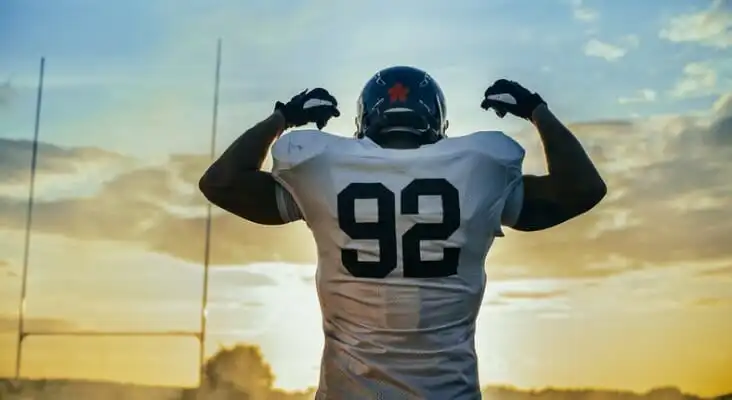Working with professional athletes presents unique challenges for advisors. Every athlete has a different career timeline and goals, as well as a different support system in place. SmartAsset spoke with several financial advisors who work with clients in the sports world, which may be of interest if you’d like to break into this high-value niche.
Read on for what advisors need to know when working with professional athletes, and what lessons they can apply to their regular, non-athlete clients.
Are you looking to expand the marketing of your financial advisor practice? Try SmartAsset AMP, a holistic client prospecting and marketing automation platform.
Understand the Client’s Career Timeline
The first thing advisors need to know about working with professional athletes is that the stakes are particularly high for these clients. “The margin of error is incredibly small,” says Tyler Martin, a Certified Financial Planner™ (CFP®), certified private wealth advisor and director of financial planning at Stonebridge Wealth Management.
“The difference between a ball and a strike is about the same margin an advisor gets in this space,” he adds. “Client experience and execution are crucial.”
With that in mind, it’s helpful to understand each client’s individual career timeline. The number of years an athlete remains active can depend on which sport they play, their overall health, and their performance, which can affect how in-demand they are.
“The biggest challenge of working with professional athletes is not the ‘possibility,’ but rather the certainty of a relatively short career and early retirement,” says Peter Palion, a CFP® professional and founder of Master Plan Advisory Inc. “This challenge is compounded by the temptation engendered by large earnings.”
Any advisors who work with clients should understand their retirement timeline, the unique health, career and risk characteristics that could impact its length, and make planning recommendations based on those factors.
“The main benefit of working with an experienced and objective financial planner is to have a voice of reason and guidance for the long term (i.e., past the end of the career, which oftentimes may be shorter than expected due to injury),” Palion says.

Client Acquisition Simplified: For RIAs
- Ideal for RIAs looking to scale.
- Validated referrals to help build your pipeline efficiently.
- Save time + optimize your close rate with high-touch, pre-built campaigns.

CFP®, CEO
Joe Anderson
Pure Financial Advisors
We have seen a remarkable return on investment and comparatively low client acquisition costs even as we’ve multiplied our spend over the years.
Pure Financial Advisors reports $1B in new AUM from SmartAsset investor referrals.
Be a ‘Gatekeeper’
Another obstacle arrives when advisors deal with an athlete’s inner circle. Members of the athlete’s family and friends group may downplay your input as an advisor.
“The biggest issue for advisors working with athletes is that there are usually a number of other people trying to insert themselves into the process,” says Marty O’Leary, a former college football player who is currently a CFP® professional and chartered financial consultant (ChFC) at Stadium Financial LLC.
“Some have the client’s best interests in mind, but some do not,” he adds. “So you need to act as a gatekeeper and not be afraid to tell those people ‘no’ without the athlete’s input.”
Is Your Firm Stuck in 1999?
Modernize your marketing with today's leading all-in-1 advisor marketing automation platform.

Approach New Investment Opportunities Skeptically

Athletes often seek opportunities to make money outside their sport. That can involve investment opportunities, marketing deals or partnerships.
Of course, any investment comes with risk, so how should an advisor help athletes approach the opportunity?
“With caution and a high degree of skepticism,” says Martin, of Stonebridge Wealth Management. “Athletes and entertainers are constantly approached with new investment ideas. I’ve seen anything from venture capital to a startup making a countertop Jello shot dispenser.”
Advisors have the opportunity here to help steer clients in the right direction.
“When looking at more speculative investments, we try to create guardrails in place so that if one of these ‘deals’ fails, it’s not going to break their overall plan,” Martin says.
Handle Large Windfalls
When an athlete receives a large contract from the professional sports team for which he or she plays, it’s life-changing. But clients need strong support to ensure that a windfall is handled wisely.
As an advisor, you have the opportunity to create a financially healthy structure. This will help the athlete succeed and sustain long-term financial wellness. And setting up plans for the future is a great way to start.
“When cash flows come in, every dollar should be allocated based on a plan to accomplish the athlete’s specific life and wealth goals,” Martin says. “If a plan isn’t in place, the money can be frivolously spent. We’re all victims of income creep, but it can be especially damaging for athletes with short careers.”
Bottom Line
When it comes to advising professional athletes, the stakes can be more intense, the career timelines may be shorter and the payouts may be bigger. But there are still lessons that advisors of non-athletes can take from the world of advising athletes.
Advisors can often be the voice of reason and act as the quarterback of their clients’ financial lives. Both athletes and non-athletes need direct, quality support from an advisor, no matter their tax bracket.
Tips for Growing Your Financial Advisory Business
- Let us be your organic growth partner. SmartAsset AMP (Advisor Marketing Platform) is a holistic marketing service financial advisors can use for client lead generation and automated marketing. Sign up for a free demo to explore how SmartAsset AMP can help you expand your practice’s marketing operation. Get started today.
- Learn from your peers. SmartAsset’s recent survey reveals the top year-end moves advisors are discussing with clients.
Photo credit: ©iStock/gorodenkoff, ©iStock/Jay Yuno, ©iStock/gorodenkoff

